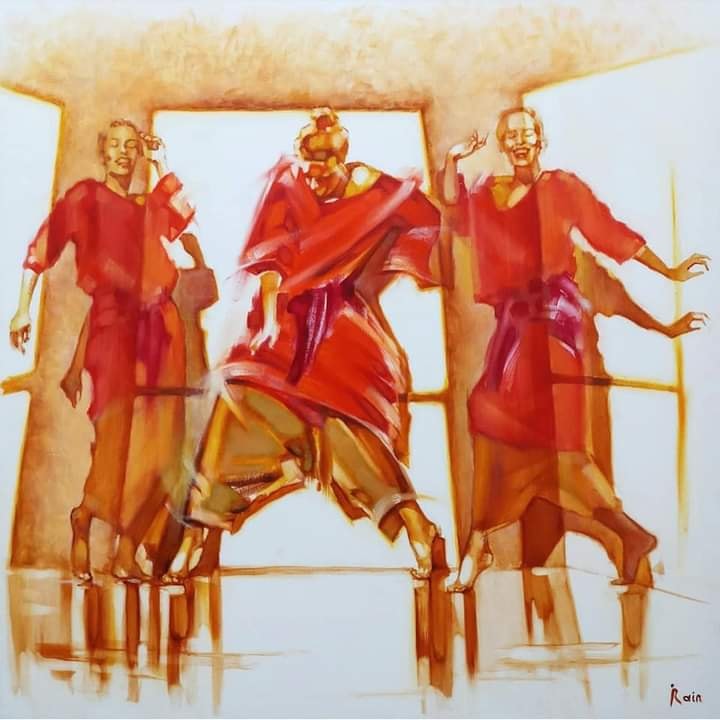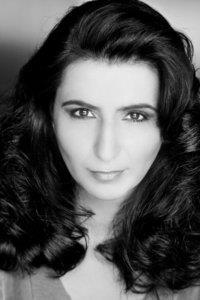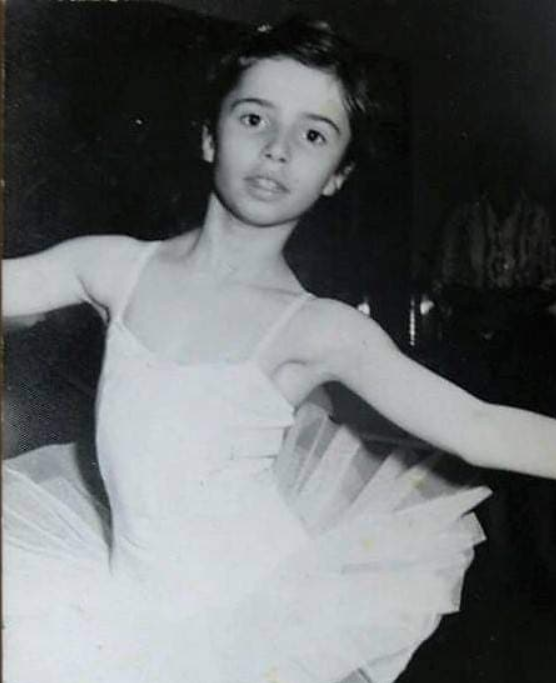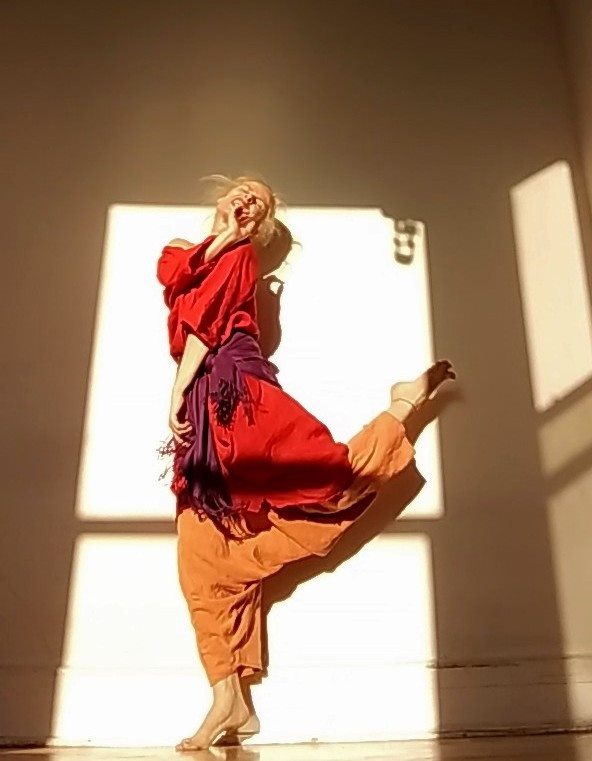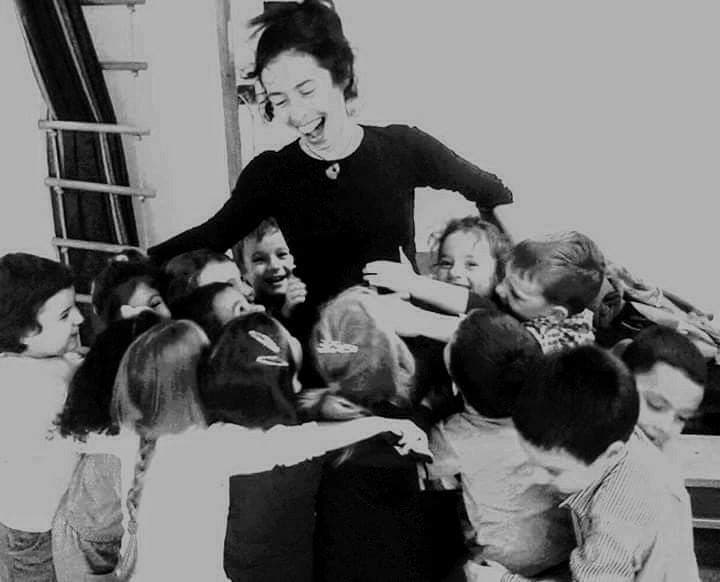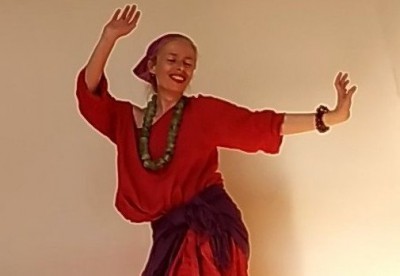Picture „Ana Lee Evans“ © Courtesy of Russian artist Irena Rain (Rishon le Zion / Israel) – Website: https://www.irenarain.com
TEXAS:
Ana Lee Evans
Interview with an extraordinary Bulgarian dancer
The interview was carried out by Çiğdem Gül
October 07, 2020
INTERVIEW
Çiğdem Gül: Dear Ana, I would like to start our conversation with the question of how you are doing in the current global corona pandemic.
Ana Lee Evans: Hello Çiğdem! Actually, I am doing okay because I like to be alone and have more time for my dogs, dancing, and writing. I think, in general, people are missing time with themselves and the ones they love, I have noticed they dont know what to do alone or with their families, which is very sad. On the other hand I understand it is very hard for those who lost their jobs and this is just one more proof that the „system“ is not working, and not because of the virus.
Çiğdem Gül: Can you please tell us something about yourself?
Ana Lee Evans: I am 47 years old, born in Plovdiv, Bulgaria. I have a 25 year old daughter, a few true friends, a dog and my favorite book is 100 Years of Solitude.
© Courtesy of Ana Lee Evans (El Paso, Texas / U.S.)
Çiğdem Gül: How did you get into dancing and what is the meaning of dance for you?
Ana Lee Evans: When I was 6 years old I was very skinny and small and my grandmother was worried, looking for ways to make me eat more. She sent me to ballet classes with the hope that I would get exhausted and hungry. In the begining it was like punishment for me, but when the pianist came back from vacation and I heard her playing Chopin all I wanted was to dance.
Çiğdem Gül: What do you do in your free time?
Ana Lee Evans: Swimming, reading, and loosing chess games to my husband. :-)
Çiğdem Gül: What would you most like to achieve with your dance in a live audience and with social media viewers?
Ana Lee Evans: All I want is to dance, online, offline, doesn’t matter for me. In live performances it is easier to connect with people, but the videos give you this intimacy with the viewer – it is him and you alone, so I learn about dancing from both. And what I want to acheive is communication, my most immodest goal is to make people who watch me to forget they are watching a dance and reminding them something about themselves, or make them feel like they are dancing while watching me. I am not interested in showing them great idea, or technique, or originl moves, but sharing with them my fears and dreams, my love.
Çiğdem Gül: When and why did you move from Bulgaria to Texas / US?
Ana lee Evans: I came to Texas three years ago because I fell in love.
wana wana kin kon from Ana Lee Evans on Vimeo.
Çiğdem Gül: What similarities and differences are there between the cultures in Bulgaria and Texas? How do they affect your dance?
Ana Lee Evans: I live in El Paso, which is on the border with Mexico and people say its neither America or Mexico, which makes the culture very specific.
Bulgaria is famous with its old and rich culture and I am used to and inspired by all these mixes, for example in music. Also the flamenco, which I love so much, is a mixture between spanish, arabic, gypsy and jewish culture, like these mixed dogs, smarter than the pure breed, the survivors, the weirdos, the unique ones… I mean, I like mixes in my dancing. I am mostly influenced by Butoh dance, which is Japanese, and Flamenco.
The biggest difference between El Paso and Bulgaria is that in my country dancers are curious and interested in what is going on in the dance world. The dancers I met here were impressed by my workshops, performances, and lessons, very confident, kind, and open, but I have the impression they are not really into dancing, compared to my students in Bulgaria. I guess this is partly because America is a tough place for artists. I will give you one example for it- I was invited to a dance festival and had to pay to perform, in Europe the festivals pay you.
Çiğdem Gül: How do you become a professional dancer?
Ana Lee Evans: There is something I always say to my students: „If you trust me more than you trust yourself, I can not teach you anything!“ I believe, to become an artist, doesn’t matter dancer or painter, or musician, you have to be brave, independent minded and brave.
Çiğdem Gül: How are the Texas audiences perceiving your solo dances?
Ana Lee Evans: For me there is no such thing as „audience“, audience is made up of different people and Im trying to dance for each of them, individualy, and not for them as a group. Here, like everywhere else, there are people that like my dancing and people that dont.
Çiğdem Gül: Which dance steps and dance styles would you be able to teach me, a Turkish woman, an indigenous person and an Eskimo? Can you really teach people from all cultures to dance?
Ana lee Evans: I have never seen anybody that can not dance. As a teacher my aim is to inspire, provoke and help you find your own way of dancing. Steps and styles don’t matter, the choreography is a blank paper, it can be anything and what makes it dance is your personality, your passion. The rest is vanity and gymnastics. With my students we used to perform 24 hour dance marathons, five times we danced for 24 hours and this is what I learned – choreography doesnt matter, why you move is the only thing that makes the dance.
© Courtesy of Ana Lee Evans (El Paso, Texas / U.S. )
Çiğdem Gül: You danced in the street for 13 years. What was your motivation to dance on the street for many years?
Ana Lee Evans: I started in the street because I had no other stage at that time. Later, after I tried all the other options for performing live, I chose it because of the freedom it gives and a closer connection with the different kinds people who watch. In theater you have an „audience“ that goes to theater, in street you have the chance to meet and communicate without mediators. You catch the „audience“ not prepared to watch dance and this makes people more honest. They have to ask themselves what you are doing and if you are good enough to be watched. In theaters people clap and behave themselves, in the street they may beat you (which actually happened to me twice) and hug you too. The street is also teaching you to be humble, not to think you deserve special attention because you are an artist and at the same time teaches you dignity and to respect yourself.
Çiğdem Gül: You have traveled internationally with your dance. Which city or country did you particularly enjoy being in?
Ana Lee Evans: In my country people have a negative attitude towards street artists, they think you are not good enough if you are in the street and not on tv. In other countries, like Spain, it’s different. I like both. I have also danced in the street in Serbia, Greece, Turkey (for half an hour before the cops stopped me) and everywhere I feel at home when Im dancing. Sometimes, you know, you can not dance at home because you have to wash dishes but you can practice foot work while doing it.
Çiğdem Gül: Ana, it’s very interesting and exciting that in the past as choreographer you gave dance lessons to inmates in the Bulgarian Women’s Prison in Sliven Bulgaria where you directed and produced Garcia Lorca’s play. Can you please tell us about the special moments, experiences and insights you gained while working in the women’s prison? Were there any dangerous moments with the women?
Ana Lee Evans: I use to say I’ve never been misunderstood by animals, kids and prisoners. Because, although inmates are people like us – all kinds, their situation is making them more sensitive and aware, more intuitive and honest in a specific way. This makes me feel safe with them, much safer than with artists. :-)
As a teenager I read In Cold Blood by Truman Capote and it influenced me deeply. Later I had this wish to perform in jail and after I did it I was allowed to direct the inmates in the play „La Casa de Bernarda Alba“. Ten years later I returned again to choreograph a dance performance with theem and both projects were financed by my friends and I. At the first rehearsal I told the women I believe there is no better place to work on and perform this play. I told them I wanted to use them, their dramas and their experience, in the making of the performance. I always felt accepted and understood there and we wrote hundreds of letters and became very close. Unfortunately both performances were performed just once. The authorities did not like my influence and doubt I’ll ever be allowed back. This is the reason I wrote my first book „Flamenco in Jail“. I can talk about jail for days and some of my friends say I never left it. And yes, there were dangerous moments and lots of laughter, tears, and doubts… everything. I learned a lot about myself, the world, and dancing. I never start dancing without remebering them, this thought of what we had together always goes through my head before I start dancing and I hope they know it.
Çiğdem Gül: In the 1980s, my parents and us, six children, drove almost every year to Turkey via Austria, Yugoslavia and Bulgaria. I remember that on trips like this we just didn’t stop and take breaks in Bulgaria because we were always told negative things beforehand. I am interested in what people in Bulgaria think about Turks, Turkish music and dance.
Ana Lee Evans: Maybe you had this impression because in the 80s bulgarian government forced turkish people living in Bulgaria to change their names to bulgarian, which I consider the ugliest moment in our recent history, but this is all politics and the politicians like everywhere else try and oftenly succeed to separate people. And like everywhere else, there are idiots, but talking in general there is no negativity towards turkish people or turkish culture, mostly because of the baklava (joking).
Çiğdem Gül: Is there anything else you would like to say to the members and visitors of our worldwide `Intercultural Network For The Highly Gifted´?
Ana Lee Evans: No, maybe just to wish them more dancing. :-)
Çiğdem Gül: Dear Ana, I love the way you dance. Please never stop dancing. Thank you very much for the exciting interview.
© 2020 Courtesy of Ana Lee Evans (El Paso, Texas / U.S.)
Facebook: Ana Lee Evans
Ana Lee Evans (El Paso, Texas / U.S.)
Contact details:
Facebook: http//www.facebook.com/ana.lee.evans.fyvm/
Email address: analeeevans17@gmail.com
Çiğdem Gül (Wuppertal / Germany)
Contact details:
Website: https://www.interkulturellhochbegabte.de
Email address: info@interkulturellhochbegabte.de
Facebook: https://www.facebook.com/interkulturellhochbegabte
Instagram: @interkulturellhochbegabte
